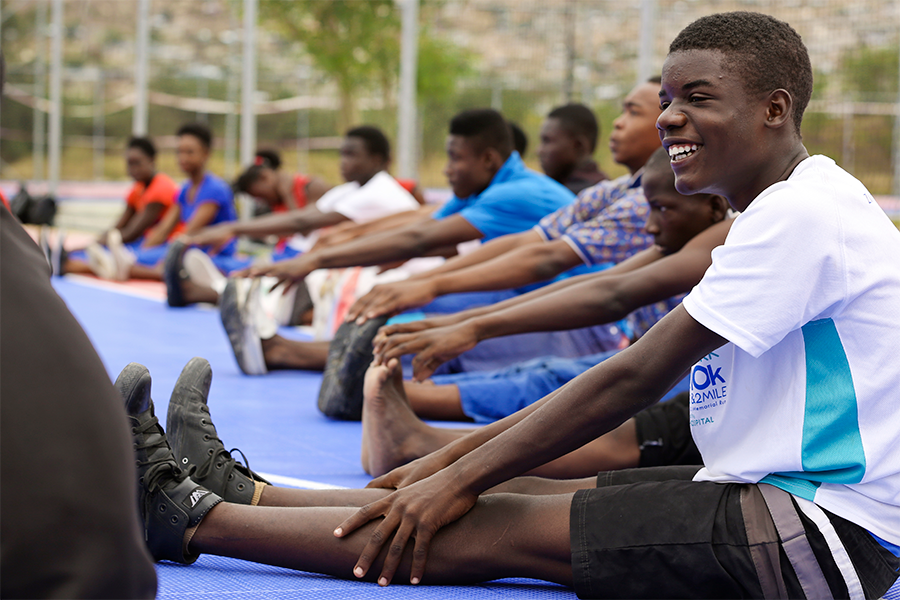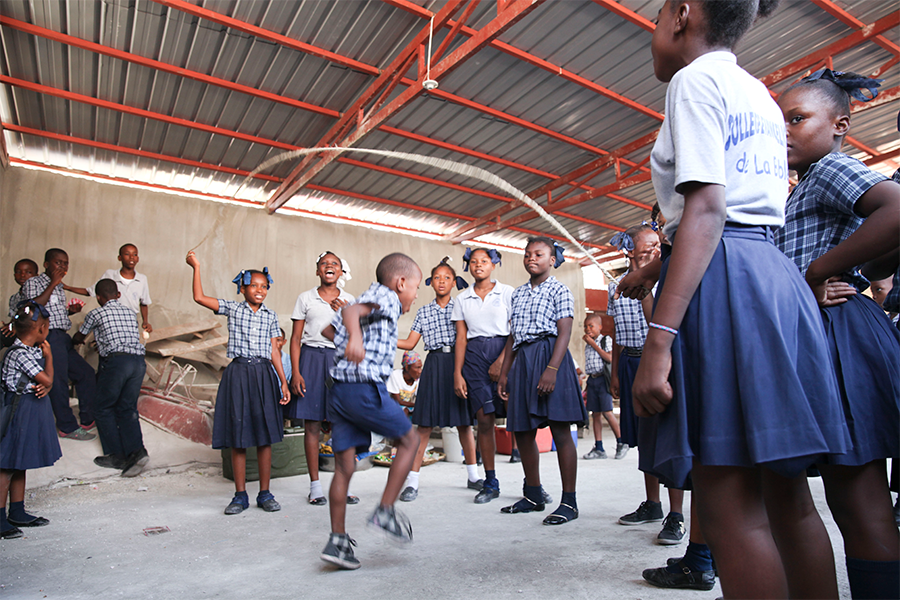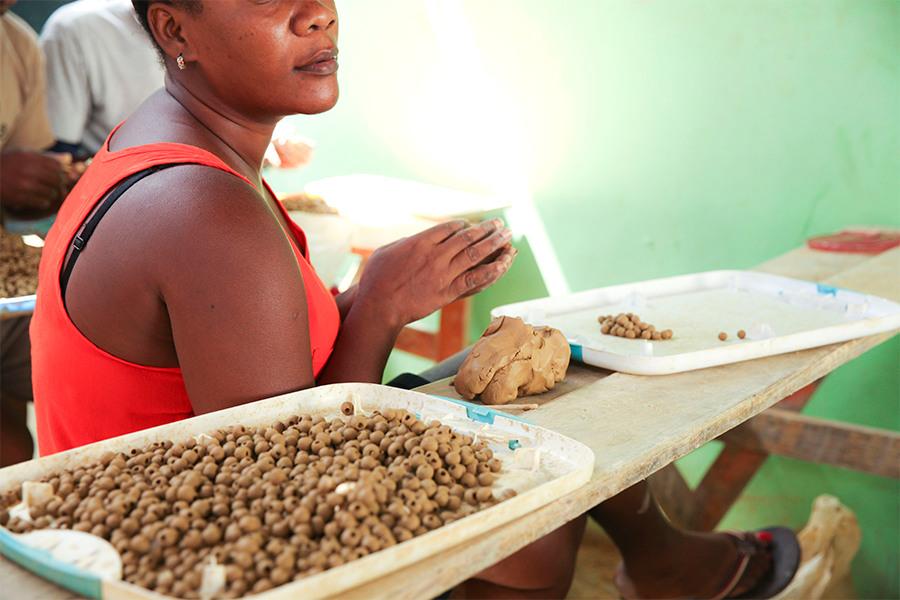See the beauty of
HaitiWith a vibrant mixture of French, African, and Caribbean cultures, Haitians are full of hope, despite living in extreme poverty.
Learn more
Haitian Culture

DEMOGRAPHICS
- Population: 10 million
- Life Expectancy: 60 years
- Literacy Rate: 53%
- Religion: Protestant, Catholic, Voodoo
- Poorest country in the Western Hemisphere
- Unemployment Rate: 70% (GDP per capita = $1,200)
- Official Languages: French, Haitian Creole
- Typically, the more French spoken, the higher the social status

Culture
- National meal consists of rice and beans.
- Customary for men to seek jobs and women to care for home and children.
- Etiquette and manners are highly respected in Haitian society
Program Overview
HBC Program
Our Home Based Care (HBC) program is a family-based program that prevents the rise of the orphan population by caring for children in a home environment. Administered through our church partnership model, World Orphans partners US churches with Haitian churches that each wholistically care for 20 orphaned and vulnerable children who are being raised by single mothers, extended family, neighbors, friends, or church members.
The Goal
The goal of this program is to equip, inspire, and mobilize the local churches to build relationships with at-risk families within their communities. Relationships grow through frequent visits to families in their homes to offer prayer, biblical training, counseling, and overall encouragement. To empower this wholistic approach to orphan care, World Orphans and US churches connect relationally with Haitian churches to provide Gospel-centered training and funding.
Funding
Funding for the HBC program comes from through our Church Partnership program. This funding ensures that these children receive the following:
Food
Meals served at school on a daily basis
Medical Care
Access to medical services and monitoring for specific health needs
Education
Assistance with school fees and supplies
Emotional Care
Counseling and mentoring at school and through home visits
Spiritual Care
Fellowship, prayer, discipleship, and encouragment
How it Works
Vulnerable Children Identified
ChilD Selection Process
The OVC committee works to identify 20 orphaned or vulnerable children in the community who are in the greatest need. From there, they meet with the caregivers to determine if the family is a good fit for the program. The due diligence process includes completing a Child Intake Form, informing World Orphans about each child in the selection process, discovering the family/caregiver history, and providing reasons for the program selection.
Home VisitS Per Family Each YEAR
Home Visits
Each family in the program receives at least one monthly home visit from the OVC committee. These visits ensure each child is receiving proper care and meeting pre-determined milestones in his/her development. Families and children receive encouragement, discipleship, financial support, and prayer during these visits. With training and support from a social worker, further assessments for each child are made at school and church throughout the week.
Impact reports each year on church, child, and community
Program Accountability
With long-term care of each child as our goal, World Orphans is serious about ongoing accountability. World Orphans staff members frequently communicate with the Haitian pastors and the OVC committee to monitor and assess each child and the overall structure of the program. The pastors are required to provide monthly financial reports on how funds were apportioned as well as quarterly reports assessing the overall OVC program as it relates to the impact on the church, the children, and the community.
Economic Empowerment

business and personal finance training
Caregivers selected for the program participate in weekly training sessions for several months prior to receiving a micro loan. These training sessions cover topics such as savings, creating a personal and business budget, and the basics of beginning or operating a profitable small business.

Microloans
After attending the training sessions and meeting individually with program staff, initial microloans are dispersed. Each participant my receive multiple rounds of loans as they grow their business until they are sustainable and graduate from the program.
